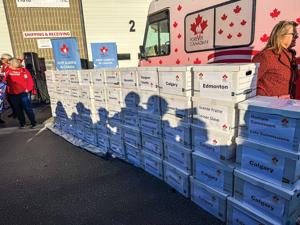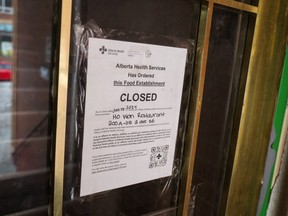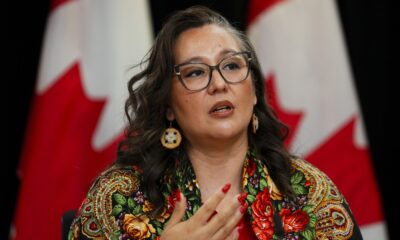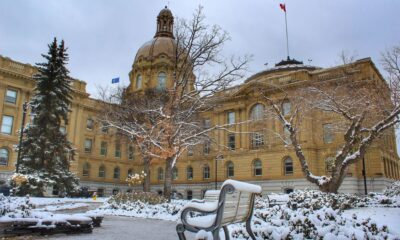Education
Parents Face Challenges as Schools Tackle Controversial Books
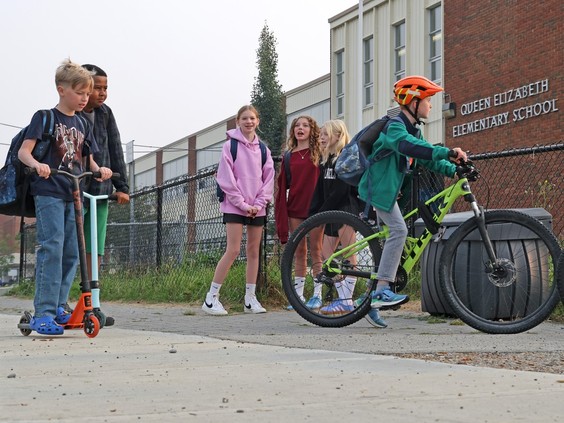
As the new school year commenced on September 5, 2023, parents in Edmonton are grappling with significant changes in their children’s education, particularly concerning the availability of certain literary works. The decision by local school boards to remove around 200 books, including classics like Margaret Atwood‘s The Handmaid’s Tale and F. Scott Fitzgerald‘s The Great Gatsby, has ignited discussions about censorship and the role of education in addressing complex topics.
Controversial Book Removals Spark Debate
The recent culling of books from school libraries, cited as containing “explicit” sexual content, has drawn criticism from various quarters. While the Alberta provincial government initially supported the removals, it has since paused the initiative amid public outcry. Critics argue that such actions represent an overreach that undermines educational integrity and restricts access to essential literary works.
Parents are now left to navigate a landscape where their children may not be exposed to critical discussions about life, morality, and the complexities of human relationships. Many worry that shielding children from these topics may do more harm than good, as the realities of life are often unavoidable.
The situation has raised a fundamental question: How can parents effectively prepare their children for the adult world when educational institutions are limiting access to important resources? Many argue that parents have a duty to discuss these topics openly, rather than relying solely on school curricula, which may not provide a comprehensive understanding.
The Role of Parents in Education
As children embark on their educational journeys, particularly those entering Grade 1, parents face the challenge of addressing complex subjects. The belief that children should learn about various aspects of life, including sexuality and morality, is shared by many. This perspective emphasizes that knowledge is not inherently harmful and that informed discussions can foster a better understanding of the world.
“The prime duty of all parents is to teach their children right and wrong, and how to live a moral life,”
said one concerned parent. This statement underscores the responsibility parents have to supplement their children’s education, especially when schools may not provide a complete picture.
For many, conversations about sensitive topics like sexuality or moral choices begin at home. The argument is that children will seek out information, regardless of whether it is provided in a classroom setting. Therefore, it becomes crucial for parents to equip their children with the tools to understand and navigate these realities responsibly.
As the debate continues, parents and educators alike are encouraged to engage in constructive dialogue about the role of literature and education in shaping young minds. Finding a balance between protecting children and ensuring they receive a well-rounded education remains a pressing challenge.
Ultimately, as the new school year unfolds, the experiences and lessons learned by today’s students will shape their understanding of the world around them. Parents must play an active role in guiding their children through these formative years, ensuring they are well-prepared for the complexities of adulthood.
-

 Politics4 weeks ago
Politics4 weeks agoSecwepemc First Nation Seeks Aboriginal Title Over Kamloops Area
-

 World5 months ago
World5 months agoScientists Unearth Ancient Antarctic Ice to Unlock Climate Secrets
-

 Entertainment5 months ago
Entertainment5 months agoTrump and McCormick to Announce $70 Billion Energy Investments
-

 Science5 months ago
Science5 months agoFour Astronauts Return to Earth After International Space Station Mission
-

 Lifestyle5 months ago
Lifestyle5 months agoTransLink Launches Food Truck Program to Boost Revenue in Vancouver
-

 Technology3 months ago
Technology3 months agoApple Notes Enhances Functionality with Markdown Support in macOS 26
-

 Lifestyle3 months ago
Lifestyle3 months agoManitoba’s Burger Champion Shines Again Amid Dining Innovations
-

 Top Stories2 months ago
Top Stories2 months agoUrgent Update: Fatal Crash on Highway 99 Claims Life of Pitt Meadows Man
-

 Politics4 months ago
Politics4 months agoUkrainian Tennis Star Elina Svitolina Faces Death Threats Online
-

 Sports5 months ago
Sports5 months agoSearch Underway for Missing Hunter Amid Hokkaido Bear Emergency
-

 Politics5 months ago
Politics5 months agoCarney Engages First Nations Leaders at Development Law Summit
-

 Technology5 months ago
Technology5 months agoFrosthaven Launches Early Access on July 31, 2025

